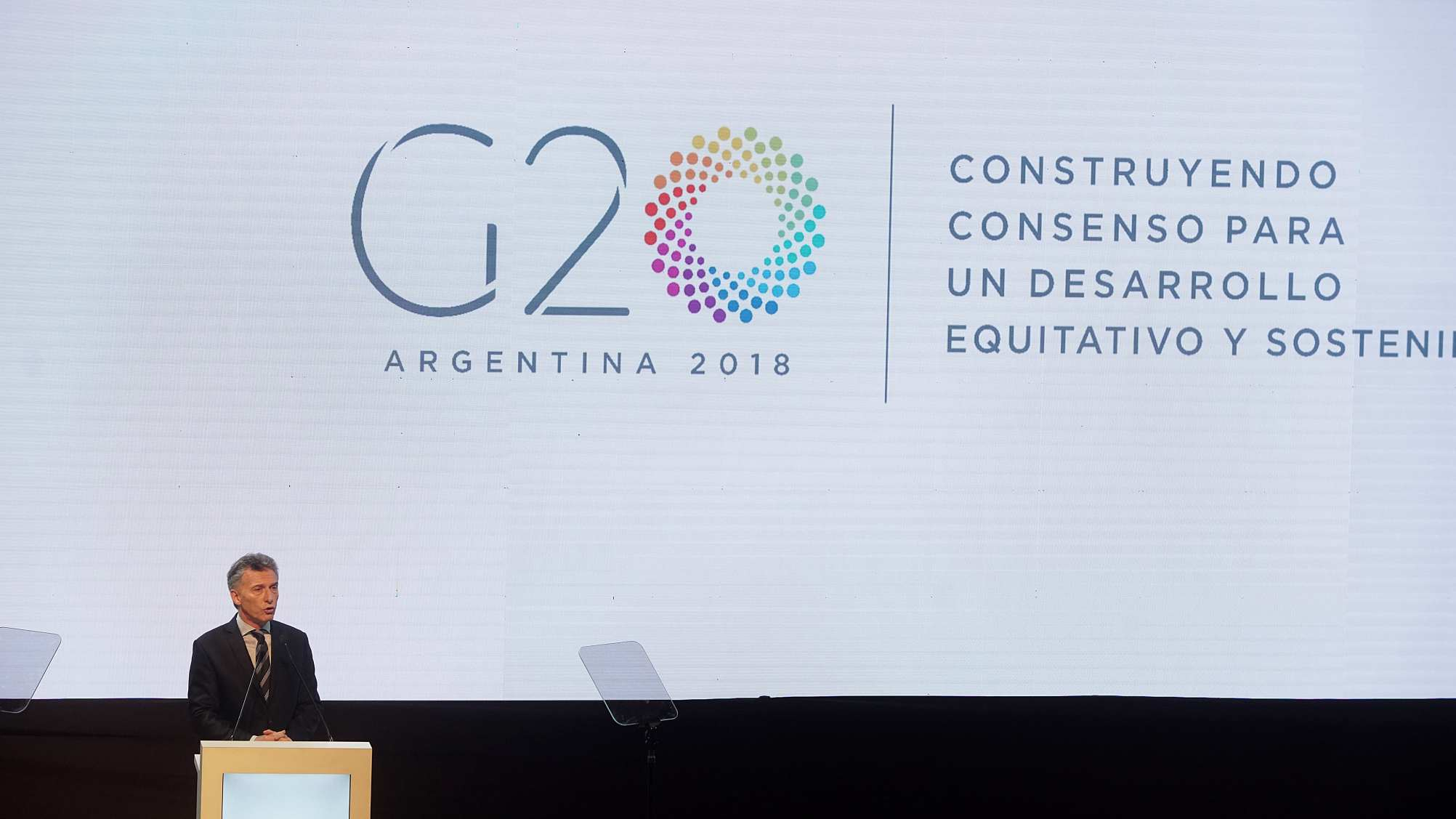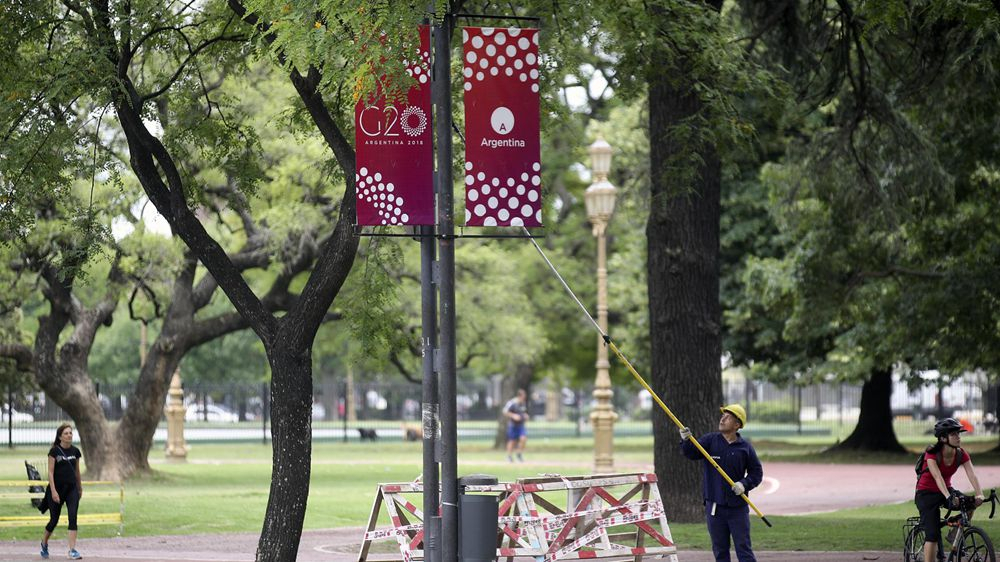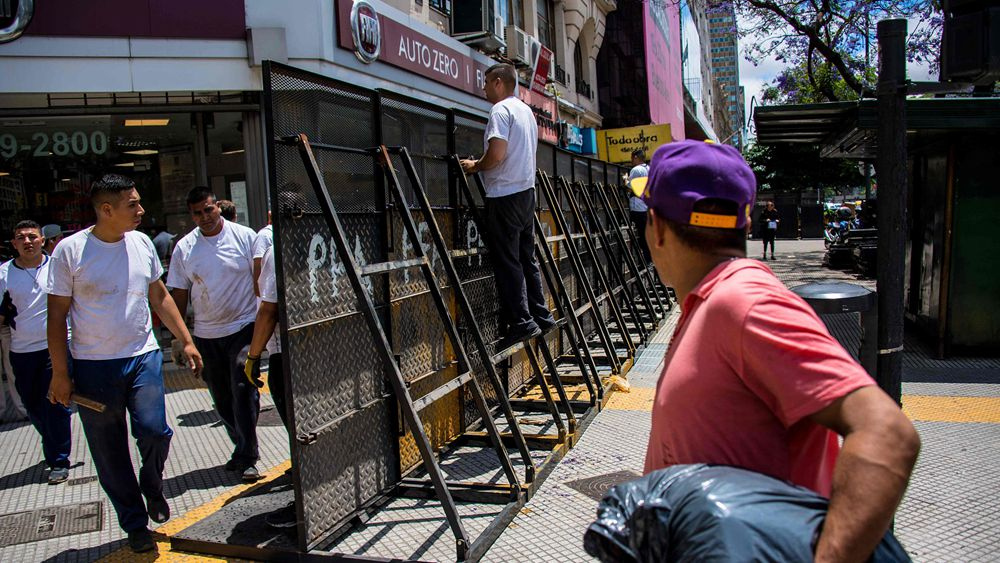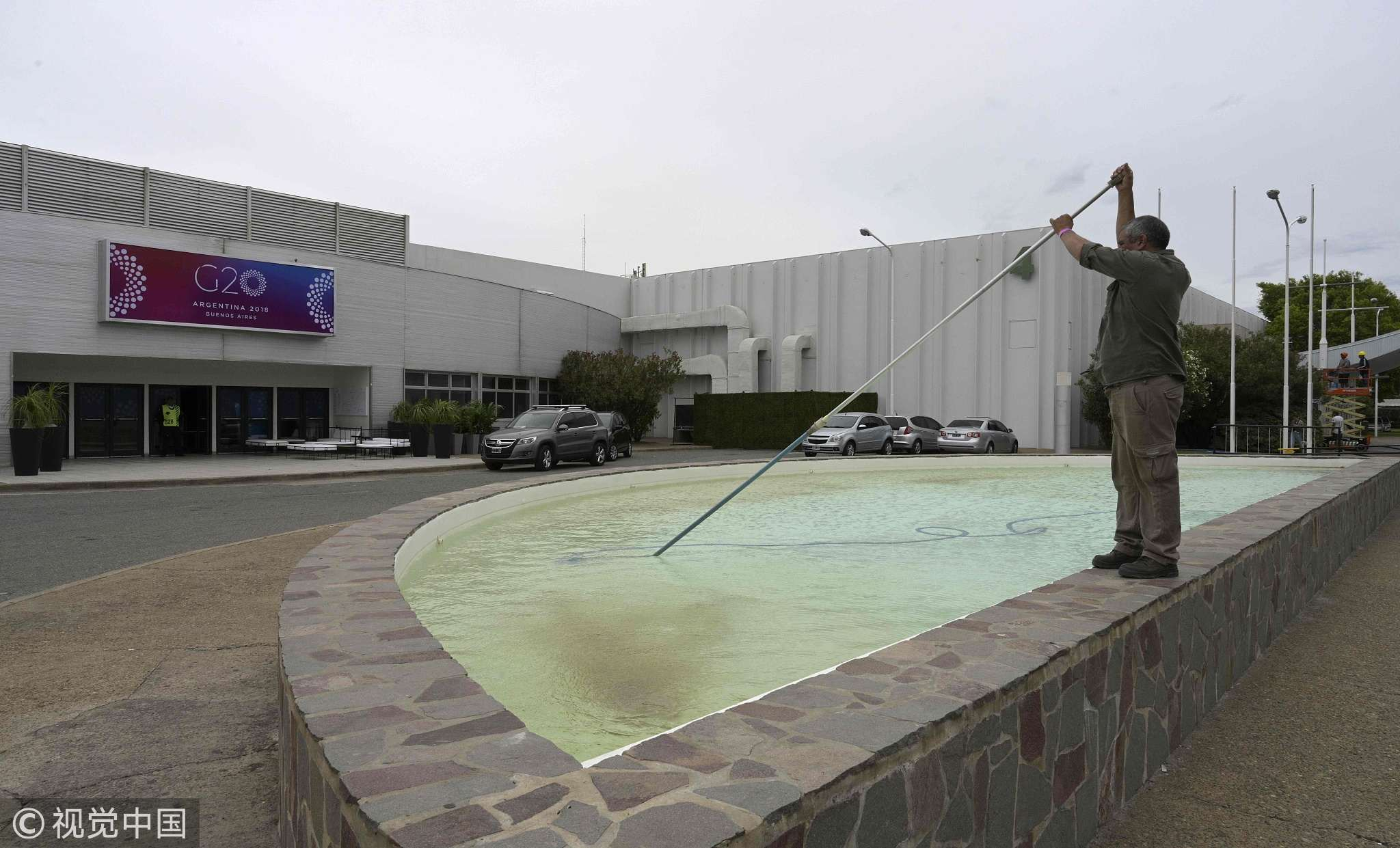
Opinions
08:01, 30-Nov-2018
Looking at the G20 through the rear-view mirror of history
Updated
06:52, 03-Dec-2018

Editor's Note: This article is an edited translation, published by China Plus on November 29, 2018, of a commentary from the Chinese-language "Commentaries on International Affairs."
This year's G20 Leaders' Summit is scheduled to be held from November 30 to December 1 in Buenos Aires, the capital of Argentina. Many observers are expecting it to become the world's most significant international gathering this year.
An article published on the Arab News website said the meeting "may become the most important G20 since the 2009 meeting in London during the storm of the international financial crisis".
But as an analysis by Reuters points out, the picture of unity demonstrated ten years ago, when the mechanism was first put into place in the face of economic calamity is now far in the rear-view mirror.

A staff worker puts G20 posters onto a street light pole in Buenos Aires, Argentina, November 27, 2018. /VCG Photo
A staff worker puts G20 posters onto a street light pole in Buenos Aires, Argentina, November 27, 2018. /VCG Photo
The disaster that was the 2008 financial crisis is still vivid to many of us. The International Monetary Fund (IMF) lowered its 2009 world economic growth forecast from 3.8 percent to -1.3 percent.
To save the global economy, G20 members coordinated programs of fiscal stimulus and raised 235 billion U.S. dollars in extra loans through multilateral development banks and financial institutions.
These helped avoid the protectionist devaluation policies of the Great Depression, which worsened that economic collapse. It was into this challenging environment that the G20 summit emerged as the premier forum for international economic cooperation.
The success of the G20 in the years that followed owed much to the broad representation of its member states, which includes the five permanent members of the United Nations Security Council, BRICS members, and the G7 states.
As the world's biggest developing country and a member of the Group of Twenty (G20), China had a key role in the joint effort to pull the world out of crisis. China's government strengthened its economic competitiveness through structural reforms.

Police officers install fences along an avenue ahead of the G20 summit in downtown Buenos Aires, November 28, 2018. /VCG Photo
Police officers install fences along an avenue ahead of the G20 summit in downtown Buenos Aires, November 28, 2018. /VCG Photo
At the same time, it persisted with the policy of opening up its market to the world and provided stimulus for trade and investment. An example of this was the decision to import commodities worth more than 15 billion yuan (2.2 billion U.S. dollars) from Europe, starting in February 2009.
As a result of these efforts, among others, the growth rate for emerging economies jumped from only 2.7 percent in 2009 to 7.6 percent in 2010. China's economy grew by 10.4 percent in 2010, which helps to explain why China contributed to more than 50 percent of world economic growth that year.
Given the success it had been working with the G20 in the aftermath of the 2008 crisis, it's little wonder that China has been a leading force promoting multilateralism and greater cooperation at the G20 leaders' summit each year.
At the 2016 meeting in Hangzhou, Chinese President Xi Jinping advocated the transition of the G20 from a crisis-management mechanism into a long-term platform for global economic governance, stating that "partnership is the most valuable asset of the G20 and the choice of all countries as they rise up together to global challenges".

A worker cleans a fountain in front of the Costa Salguero Center which will host the upcoming G20 Summit in Buenos Aires, November 27, 2018. /VCG Photo
A worker cleans a fountain in front of the Costa Salguero Center which will host the upcoming G20 Summit in Buenos Aires, November 27, 2018. /VCG Photo
Looking back on the past decade, it seems there is just as great a need for coordination and cooperation at this year's G20 summit as there has been in the past. But according to the latest data from the World Trade Organization (WTO) , between May and October this year, there have been 40 trade restrictions levied between G20 members.
These barriers are impacting on 481 billion U.S. dollars in trade, making them the worst impediments to emerge since records began in 2012. The reality that the international situation had deteriorated to this extent has led to concerns that the meeting in Buenos Aires will come to a fruitless end, as did the G7 meeting and the APEC Summit earlier this year.
Despite this, it should be remembered that the G20 is a mechanism, not a magic pill.
The world needs the leaders of the G20 to rekindle their willingness to unite and cooperate. If they can meet for frank and honest talks, that would in itself be a meaningful step towards averting a crisis, because the more mutual understanding they have, the lower the chance that they will stumble unexpectedly into a new economic calamity.
(If you want to contribute and have a specific expertise, contact us at opinions@cgtn.com.)

SITEMAP
Copyright © 2018 CGTN. Beijing ICP prepared NO.16065310-3
Copyright © 2018 CGTN. Beijing ICP prepared NO.16065310-3